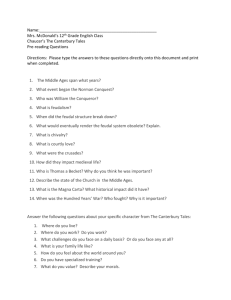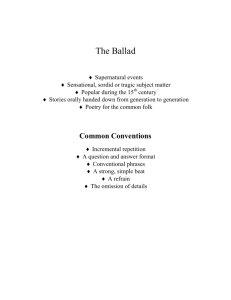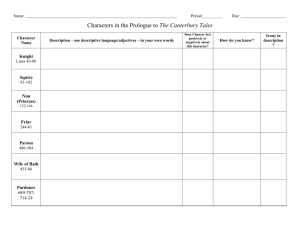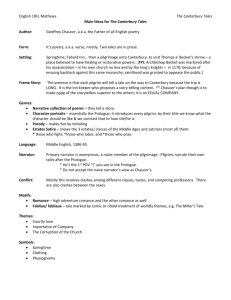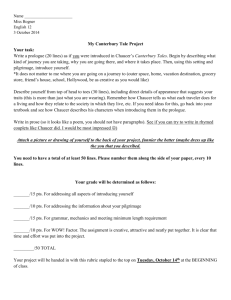Canterbury Tales and Chaucer
advertisement
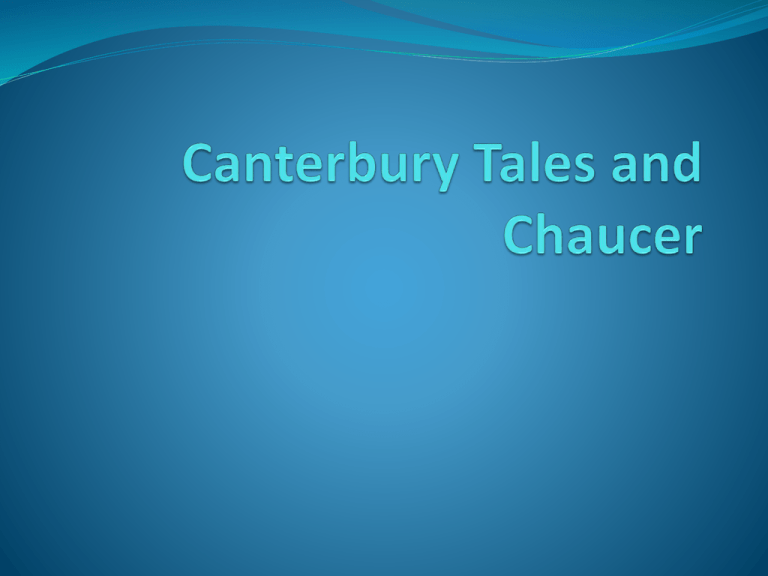
So who is this Chaucer guy? c. 1343-1400 Considered the father of English poetry Wrote in the vernacular of the time Served as a soldier, government servant, and a member of Parliament Introduced Iambic Pentameter First writer buried in Westminster Abbey Why is Chaucer called the Father of English Poetry? Chaucer is called the father of English poetry because he made the English language respectable. Most people during this time period spoke Middle English, although educated people wrote in Latin and French. English was not a language that was taken seriously. By writing poetry in English, Chaucer gave respect to the everyday language spoken by the common people. The town of Canterbury Canterbury is a town famous for a murder. In 1170, Thomas a Becket was the archbishop of Canterbury, meaning he was the highest Catholic church official. King Henry II didn’t like Thomas a Becket because Becket criticized the king. The King’s knights murdered Becket on the alter of the Canterbury church. Picture taken and postprocessed by Hans Musil. Who tells the story? The story is told by an unnamed narrator who is probably Chaucer. What is the story about? Several individuals are on their way to Canterbury, on a pilgrimage, to pay respects to Thomas a Becket. Everyone is headed to Canterbury Cathedral. On their way, the inn host offers a prize to the person who can tell the best story. The story is a frame tale or a tale within a tale. Chaucer never actually finishes writing all of the tales. The Challenge Tell two stories on the way to Canterbury and two stories on the back. The purpose was to make the trip go by faster. The prize was a dinner paid for by the other pilgrims. What is a pilgrimage? In religion and spirituality, a pilgrimage is a long journey or search of great moral significance. Sometimes, it is a journey to a shrine of importance to a person's beliefs and faith. Members of many major religions participate in pilgrimages. A person who makes such a journey is called a pilgrim. Who is on this pilgrimage? The Travelers to Canterbury The working class: Plowman, cook, miller, reeve, host, haberdasher, dyer, carpenter, weaver, carpetmaker. The Professional class: Military: Knight, Squire, Yeoman Religious: nun, 3 priests, friar, parson, pardoner, summoner Secular: cleric/student, sergeant at law, merchant, skipper, doctor Upper Class: The Wife of Bath The Franklin Why is this important to me? Chaucer gives an accurate portrayal of the time period. He shows real characters of the time. The story includes history of our language.


